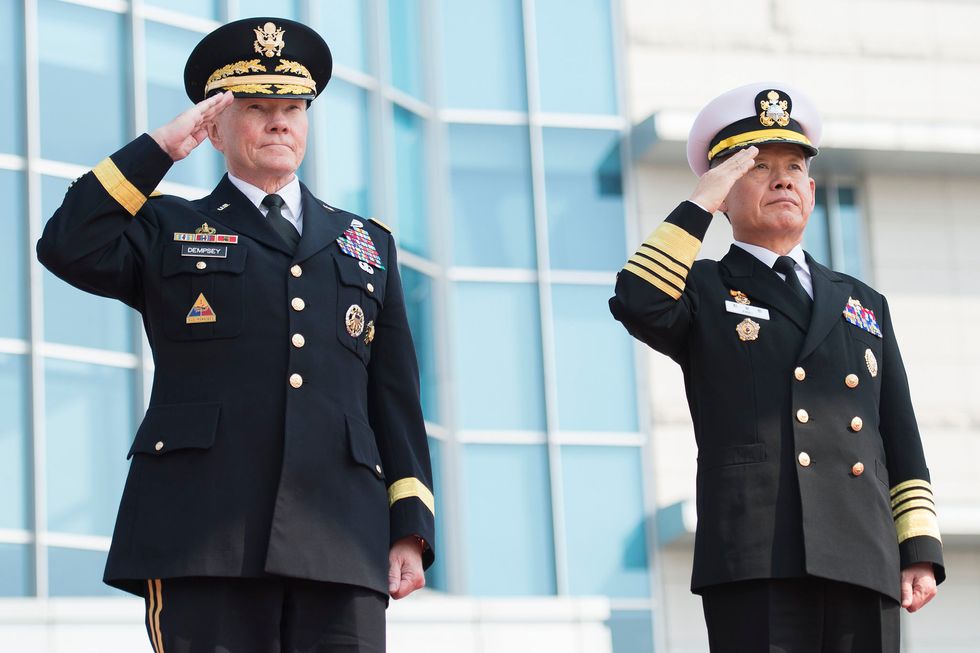If you asked anyone under the Obama administration if they ever saw peace coming to the Korean peninsula, they would likely laugh and say that peace was impossible there.
Now, here we are with a new administration and a president that is often heavily ridiculed for his over the top rhetoric on the foreign level. Tensions between the United States and North Korea were at an all-time high it seemed, many believed that nuclear war was inevitable.
For others, they believed that this tough rhetoric from Trump was going to reel in the North.
Fast forward a year.
Here we are in 2018, nearly halfway through the year, and not only is President Trump supposed to meet with North Korean leader Kim Jong Un, but the dictator has even stated that he is willing to discuss the denuclearization of the North Korean state. That in itself is a HUGE diplomatic win for Trump and shows that the tough, we will not back down rhetoric paid off. Under the Obama administration, many blame the growing power of the Korean regime to the weak show of force that Obama was putting out, allowing the dictator to do most anything he wanted with little repercussion.
Where we are now.
Now, as of a couple of days ago, the North and South Korean nations have reopened their diplomatic relations and have even begun discussion of ending the Korean War, a war that has not technically ended since it was started nearly 60 years ago.
Obviously, this is a huge step towards world peace and an even larger win for the Trump administration. Should this peace treaty be signed, and some peace and stability are delivered to the Korean Peninsula, I believe that Trump will be owed a huge apology from the news organizations and senators on the left that doubted his tactics of bringing stability.
Much like under former president Ronald Reagan, through the use of flexing American muscle, much has been able to be accomplished.
Some doubt remains.
While this is a huge step that hasn't been taken in diplomatic relations between the countries involved, there is still some diplomatic red tape that needs to be cut in order to get this process to go through. Including the recognizing of North Korea diplomatically, because treaties can only be signed by nations that recognize each other diplomatically.
Another thing we may see come out of this is the demilitarization of the demilitarized zone that divides the nation. As redundant as that sounds, the area continues to be the worlds most heavily fortified and armed border.
Potential reduced U.S. military presence.
In the past, the North has demanded the decrease of U.S. troops on the border in exchange for its denuclearization, a demand that the U.S. and the South have refused. Now, Kim seems to be willing to budge on this aspect of the deal, keeping a U.S. military presence at the border.
Former South Korean unification minister has stated that he is "quite sure that if relations between North Korea and the United States improve, the North will not demand the withdrawal of American troops in signing the peace treaty." Many also believe that if North Korea agrees to scrap the ICBM program, that Trump will likely withdrawal a majority of U.S. troops from the peninsula, but only time will tell.
The nations are expected to announce an end to the war any day.




 StableDiffusion
StableDiffusion StableDiffusion
StableDiffusion StableDiffusion
StableDiffusion Photo by
Photo by  Photo by
Photo by  Photo by
Photo by 
 Photo by
Photo by  Photo by
Photo by  Photo by
Photo by  Photo by
Photo by  Photo by
Photo by 











